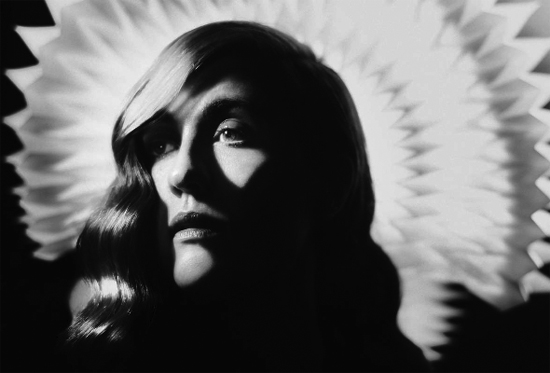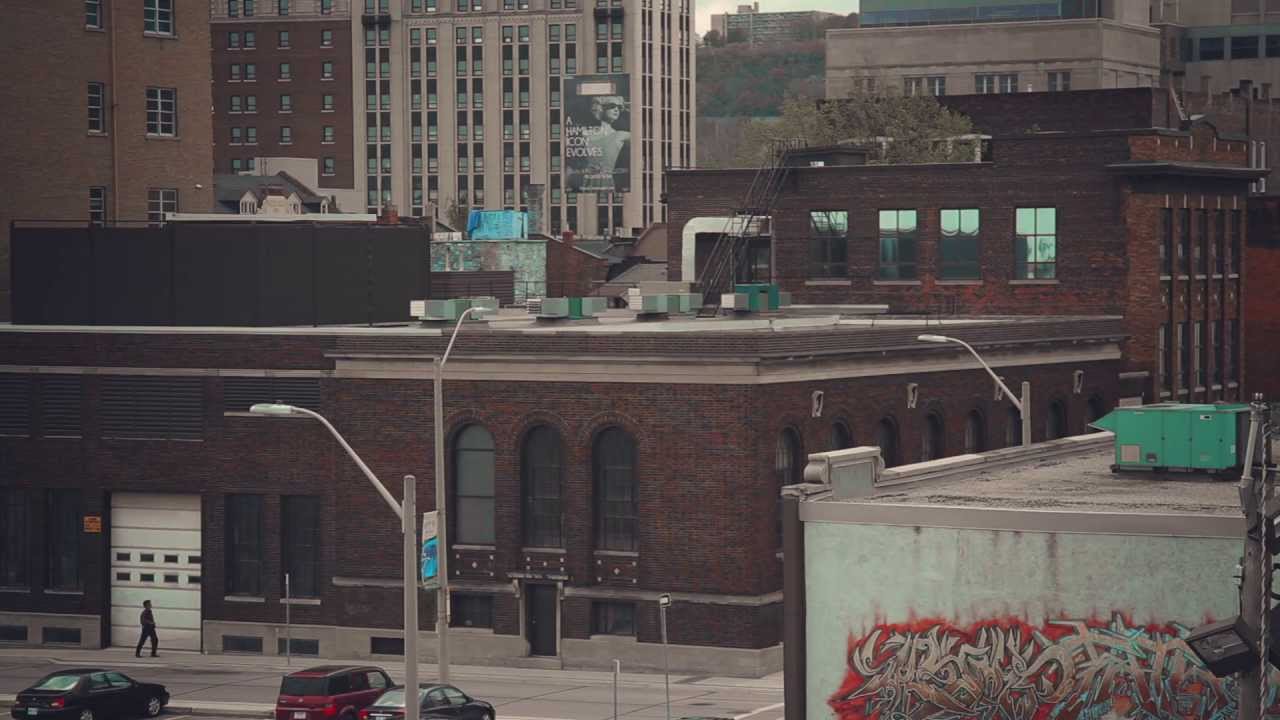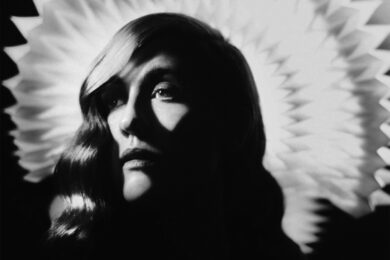Jessy Lanza’s debut album, Pull My Hair Back, out next month through Hyperdub, is a treat. Managing to be both precise and impressionistic, it layers citrussy sour notes over a haze of delicious synths and samples, arpeggiated bass and beats derived directly from the hip hop Lanza clearly loves. The vocals are treated for distance, crisp enunciation and measured tone dissolving into swoops and sweeps of texture. Ontario-based Lanza draws on 80s R&B and later disco throughout, but most clearly in the album’s joyful mid-point ‘Keep Moving’, which you should expect to dominate your bedroom dancing for the rest of this year.
This album has been my constant companion through the sweatsoaked last month of summer: through bus rides over Blackfriars Bridge, through meetings and demonstrations and anti-fascist actions, through long evenings alone in the office; through walks on Brighton seafront, on Walworth Road, in Burgess Park. All these landscapes I’ve superimposed on the record, and it’s friends with all of them: with the sea and the shipping containers, with the lake and the squats and the pound shops. At a time when the Home Office invades public space with its foul billboards and bunting flies everywhere it hasn’t been torn down, these headphones are armour.
Produced jointly with partner Jeremy Greenspan of Junior Boys, the record is nothing if not accomplished, yet Lanza herself is reluctant to mystify her process. She is self-deprecating to the point of shyness, her language peppered with the modern interjection – like, you know, and stuff, I guess – and an odd little set of bookends: yeah so, so yeah. She’s in the habit of retreading, of retreating: making a point, undermining it, repeating it with certain elements foregrounded, then dissolving into laughter. It’s an effect not dissimilar to her production aesthetic, and completely charming.
How did the record come to be?
Jessy Lanza: Um… how it came to be. Yeah, so I first met Jeremy when he asked me to come do some session work on the Junior Boys record It’s All True, so we started working on music together, so yeah. He knew that I sang and played piano and stuff, and then after that we started kind of messing around and working on some tracks, and then over the past three years we got enough to have a full album. Sometimes what’ll happen is I’ll have a drumbeat that I’ve done, or a few choruses, the skeleton of a song, and then we’ll take it over to his fancy studio [laughs]. I have enough stuff in my studio to work on stuff, but I don’t have quite the level of equipment that he has, he’s been doing it for a lot longer than I have. So, yeah.
I hear you’re a piano scholar, and that fits with the way I see you using your keyboards: there’s a distinct handedness to the mix of percussive and impressionistic textures, almost like ragtime.
JL: [Laughs] I went to school for jazz performance, that’s what I did my undergrad in, then I did classical piano when I was a teenager. So yeah, I don’t practice much on the piano anymore, so I don’t think of myself as scholarly, but yeah. Like, going to school for jazz music, a big part of it is learning other people’s solos and listing chord progressions and that kind of thing, so I find it makes it easier to write songs, you have a full repertoire of chord progressions in your subconscious. In that sense, it helps a lot – I love learning other people’s songs, and it filters into your own writing, obviously.
And your vocals, do you feel the need to complicate them with treatment too, the way jazz complicates a scale?
JL: Uh… well… A lot of that comes from just taking samples into Ableton and splicing them, so that when they loop they will have a totally different sound to them – it’s from cutting them up. Or, um, ticking them down? Which is totally obvious. [laughs] To be honest, when I’d do a vocal take, I never thought of myself as being a singer, I always liked to play piano and do the instrumental part more, I would just listen to these vocal takes and think, this is so fucking boring. I need to fancy this up a little bit. Or after listening to different tracks that I like and taking splices out of it, I’d think ‘I need something to be a little different in this part’, and I’d throw in some samples and it would just work out, so yeah. I don’t know if it was purposeful, but I guess it just came across that way. Like, I remember listening back to the record thinking, wow, there is a shitload of delay on all of these tracks, and not even noticing that it had happened.
R&B is clearly an influence vocally – you’re not shy to use whistle tone, for example.
JL: [laughs] Well, I love all different kinds of R&B vocals, like I love Patrice Rushen, she’s so warm and understated. I love Cheryl Gamble [from SWV], she has this really like childlike quality to her voice, almost like Bobby Brown when he was in New Edition or something… I like 702 or, like, Blaque, but I love the 80s stuff like Melba Moore or Evelyn Champagne King, they have like crazy strong voices. My voice is so far removed from that but I definitely listened to all that kind of music and I think it probably comes out strongest on like, ‘Keep Moving’ or something…
A lot of times when I’m doing drums it comes from hip hop listening, like I’ve listened to some amazing Cam’ron track or something, there’s some great hip hop producers that I really admire. There are these guys the Heatmakerz, who did all of the Juelz Santana records, and the drums that they do are amazing, they did like the ‘Dipset’ anthem or something. Or Def Wave, he’s amazing too, so yeah.
But the way you use these influences is quite painterly and distinct. It reminds me of, you know Venus Extravaganza’s last scene in Paris Is Burning, the pier scene…
JL: Barbara Mason!
Yeah, and I love that track, it’s fucked up, but not just that track – the way the camera passes over the pier, and there are all these little queer crews all over with their own boomboxes, and the wind is shifting and pushing the different tracks up against each other and overlayering them…
JL: Oh, that’s a great way to talk about the record, thank you.
I wanted to ask probably a silly question about setting. The songs seem so well situated to me, and I’ve been using them to deal with being in a lot of quite hostile environments. I wondered whether you had a sense of place, lyrically, going on?
JL: Um…I write the lyrics alone mostly, late at night, in my little box closet of a studio. If that’s a setting, it would be there. I don’t want to come off as sounding like lyrics aren’t important to me, because they are, but when I’m writing I’ll often be doing these vocal takes and not really sure of what I was saying, and I’ll just say what seems to fit in right at the time. A lot of times I don’t remember what the actual lyrics of those songs are. It was late at night, I recorded a bunch of stuff, and then I’ll go back and edit, things get pushed around.
Like a collage method?
JL: Yes, in a way, that’s a good word to use to describe them I guess. It’s more like…. I hate the sound of overthought lyrics, the sound of them [laughs]. So I guess the lyrics come from… I guess collage is a good word. I can’t think of one song that I sat down and…. [laughs] I guess I’m not answering very well.
No, it’s fine. I think I’ve just had some specific experiences with it. It’s interesting that it’s being described mostly as an electronic pop record, int he vein of The xx or Jessie Ware, whereas I think there’s a much richer vein going on here.
JL: I think of it as being an R&B record, that’s what I was going for, and that’s what I hope comes across, but if people want to call it electronic pop, that’s fine. I like the different interpretations. Yeah, whatever people want it to be for them is fine. So, yeah.
Jessy Lanza’s Pull My Hair Back is released in September via Hyperdub




